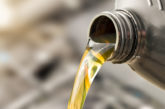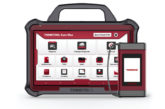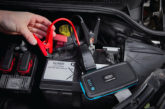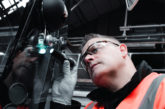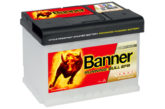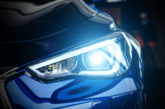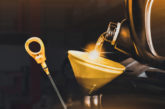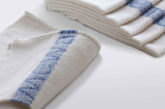Philips is fighting back as the sale of counterfeit parts across Europe becomes an increasingly damaging problem.
The sale of counterfeit parts across Europe has become an increasingly damaging problem in recent years and businesses keep comping up with new and unique ways to tackle these issues. Philips became the first brand in the automotive lighting sector to fight back against these counterfeiters back in 2014. Although the buying, sale or possession of these products is illegal, there is also a potentially lethal safety issue. Counterfeit bulbs are likely to cause dazzling of oncoming drivers due to lights being well above the legal limits of what light should exceed. This is when glare starts to occur, increasing the risk of a serious accident. In addition to this, they can very easily overheat causing failure in the car electronics and also fires which could well go undetected due to the location of the lights on the vehicle.
Check Your Bulbs
Philips has a number of measures in place to help combat the sale, distribution and fitting of counterfeit parts. Foremost among these is the packaging of Philips HID Xenon bulbs, all of which carry a Philips Certificate of Authenticity, in the form of a hologram and a product number coding system unique to that particular bulb. A special microsite – www.philips.com/original – allows customers to instantly check they have purchased a genuine Philips product by simply typing in the coding found on the packaging. The packaging also carries a QR code, making the microsite instantly accessible to those with a smartphone and allowing authenticity to be verified in, for instance, a workshop environment, where it is likely to be most applicable. Considering the packaging of counterfeit bulbs and even the seals can be identical to that of authentic models, this service proves very beneficial. 
Many companies in the automotive aftermarket have also employed very similar security checks to aid customers in their pursuit for authentic parts.
Like with so many top end products comes the inevitable risk of others looking to copy, some of which is through legitimate means and others not so. Lumileds European Director of Marketing, Weena Lemoine, explained: “The issue of poor quality bulbs – which, invariably, do not last long and often throw a light beam that either badly illuminates the road ahead, or whose glare dazzles oncoming traffic – is something that we have to tackle and to educate people about, on an ongoing basis. With the intricacy of an HID Xenon system – and the relatively complex electrics it contains compared to a standard halogen system – the results of fitting a fake bulb can be damaging and costly to both man and machine. This problem is made worse still by the fact that the bulb at fault looks like it comes from a reputable manufacturer.”
High Standards
Customers can be sure that the quality of Philips bulbs meet or exceed the incredibly high standards it needs to satisfy. Philips bulbs either for OE or aftermarket use have passed stringent checks throughout production so that failure, even amongst thousands of bulbs, is almost unthinkable.
The legal battle against the lighting pirates has stepped up, as those who sell and distribute counterfeit Philips bulbs are increasingly identified and brought to account. Measures have already been taken against numerous companies found to be selling pirate ‘Philips’ bulbs, with these certain products being successfully removed from sale and further legal action following. Across the world, tens of thousands of counterfeit bulbs have been seized and destroyed.
Marketing, advertising and communication initiatives continue to support the campaign against counterfeiters so that both trade and consumers are aware of the issues.


